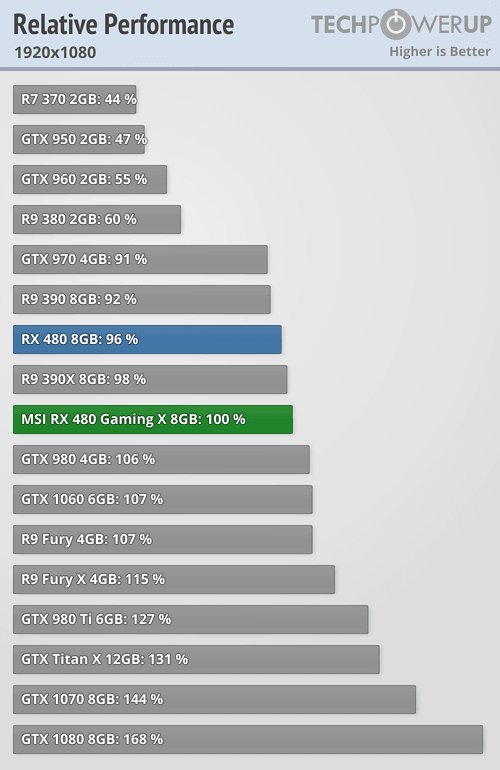Only one of them isn't a mini or reference card. so among the 3, the Giga is the better choice. before pulling the trigger tho, I'd suggest going here
https://www.techpowerup.com/reviews/
Putting "1060" in the windows and looking at what's listed.
MSI GeForce GTX 1060 Gaming X 6 GB (9.8 rating - $260 on on pcpartpicker)
Gigabyte GTX 1060 Xtreme Gaming 6 GB (9.8 rating - $280 on pcpartpicker)
MSI GeForce GTX 1060 OC 6 GB (9.7 rating - $240 on pcpartpicker)
Palit GTX 1060 Super JetStream 6 GB (9.7 rating - no pricing)
ASUS GTX 1060 STRIX OC 6 GB (9.0 - $280 on pcpartpicker)
MSI GeForce GTX 1060 Armor OC 6 GB (9.4 rating - $254 on pcpartpicker)
What about is there any other graphic card for the same price and is better?
yes, see above ... the Gigabyte Xtreme and MSI Gaming X score higher, the Gaming X is the same price, the MSI OC is $20 cheaper but not currently stocked on Amazon
If you do the 480 ., make sure it's the MSI ... see techpowerup article.
Canned 480 / 1060 data comparison below:
================================================The correct choice will ultimately depend on what games you play. What we know:
1. Which one - Not all cards are created equal but this is especially true with the RX 480. Techpowerup writes:
https://www.techpowerup.com/reviews/MSI/RX_480_Gaming_X/28.html
In my opinion, this is thus far the only RX 480 that looks like it can compete with the GTX 1060 and its custom designs.
2. Out of the Box performance - So let's compare two cards from the same (MSI) manufacturer and model line (Gaming X). From above link:
As a result, the card is 4% faster than the RX 480 reference and 6-7% slower than the [reference] GeForce GTX 980, GTX 1060, and Radeon R9 Fury, which all have roughly the same performance at 1080p.
3. AIB Cards - From the above, we see that the MSI RX 480 is 7% faster overall in TPUs 16 game test suite. From Below, the MSI 1060 Gaming X is 3% faster than the reference 1060 ... so we can can conclude that at the time of testing the MSI 1060 was 10% faster than the MSI 480 in the 16 game test suite
4. Overclocking - We see there that the MSI 480 overclocks 8.6% and the MSI 1060 overclocks 15.1%.. So when the 1060 (10% performance advantage) is overclocked, the relative difference would be:
https://www.techpowerup.com/reviews/MSI/RX_480_Gaming_X/26.html
https://www.techpowerup.com/reviews/MSI/GTX_1060_Gaming_X/27.html
110% x (115.1 / 108.6) = 116.6% of the 480s speed or 16.6 % faster
As for difference between brands ... the various brands trade wins depending on generation and model line but the EVGA SC is one to avoid as, unlike the competition, they use a reference PCB and referece style PCB cooling.
5. Driver improvements - AMDs driver improvements have improved the performance of the 480 since originally tested. As we can see from the link here, TPU tested the results from the latest driver improvements and found an increase if 2.1% at 1080 p average across 21 games:
https://www.techpowerup.com/reviews/AMD/Radeon_Crimson_ReLive_Drivers/6.html
Unfortunately, we have no info on what improvements have resulted from newer nVidia drivers but suffice to say, those improvements have not erased that 10% gap outta the box (16.6% in both overclocked.
6. Cost - Last I looked (yesterday) the MSI 1060 6GB was about $15 more than the MSI 480 8GB on newegg. But there are other costs worth considering
7. Power - There is a significant difference in power usage between the two cards. One of the reasons for the MSI 480s performance,as stated in the review, is because it is able to use more power than many other 480s. That's 75 watts in typical gaming and 99 watts peak
The MSI 480 draws from 196 - 224 watts
The MSI 1060 draws from 121 - 125 watts
https://www.techpowerup.com/reviews/MSI/RX_480_Gaming_X/21.html
8. Power Costs - While this is something you normally wouldn't consider, when cards are very close in performance, it may be of significance to many users, especially those in Europe and especially in urban / suburban locales.
75 watts x 35 hours per week x 52.14 weeks per year x 3 years usage x $0.131 US average electric cost per kw-hr / (1000 watts per kw=hr x 85% efficiency) = $63.28
9. Case Cooling - The rule of thump for case fans in a relatively quiet system is one (1) case fan per 75 watts for power. So for comparable interior case temps, you might want to include the cost of an extra case fan.
10. Noise - The 480 is 3 dbA louder than the 1060
https://www.techpowerup.com/reviews/MSI/RX_480_Gaming_X/22.html
https://www.techpowerup.com/reviews/MSI/GTX_1060_Gaming_X/23.html
So ... that's the data ... it's up to you to look at what you want to do with it ...
- If you don't use MSI Afterburner, then the OC advantage may be of no interest to you
- If you wear headphones, then the noise advantage will be of no interest to you
- Initially the 480 has an apparent cost advantage but the larger PSU requirement and extra case fan eats that up. Considering power costs along with the preceding, the 1060 is the more cost effective buy by far
- If you already have an oversized PSU then the power advantage is of no interest to you
- If you don't pay for electricity cause it's included in rent, then the power advantage is of no interest to you
- But most of all, if those 16 - 21 games that TPU uses for testing are not ones you play, then you need to pay specific attention to how each performs in games you do play... so start here and see how each performs in the games you are interested in.
https://www.techpowerup.com/reviews/MSI/RX_480_Gaming_X/6.html
https://www.techpowerup.com/reviews/MSI/GTX_1060_Gaming_X/6.html
How each individual arrives at their choice will be different for everyone, there is no "wrong choice" here.


